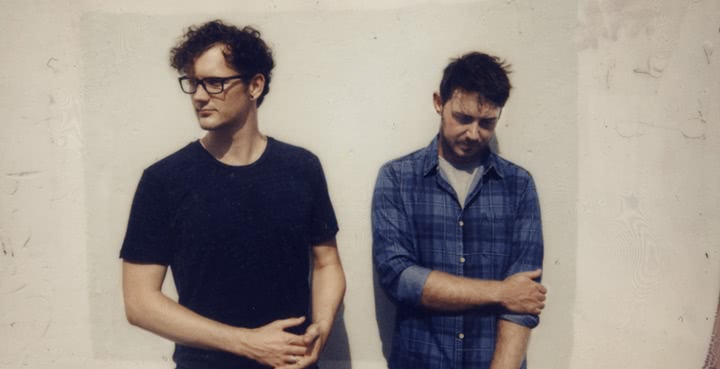Two songwriters with a keen ear for production, Dustin Tebbutt and The Kite String Tangle (AKA Danny Harley), recently teamed up on the single ‘Illuminate’. Despite the pair’s clear chemistry, ‘Illuminate’ didn’t transpire out of a long-time friendship. Rather, mutual admiration for each other’s work is what brought them together.
Ahead of a quick national tour on which Tebbutt and Harley will each perform separately before bringing it home with a collaborative set, the BRAG arranged for them to get to know each other a bit better.
Dustin Tebbutt: I was interested to know, with songwriting, where’s your line in terms of how far you push something away from reality, or how much of it is actually to do with your life?
The Kite String Tangle: What seems to be most prominent is I’ll start working on music first and then the feel or vibe will remind me of something that is going on in my life and I’ll kind of extrapolate on that. I never like to make it intensely personal, because I like people to be able to relate to it and apply it to themselves. The new Sufjan [Stevens] album is someone writing intensely personal stuff and just pulling it off really immaculately. I think I need to build up to that.
DT: Would you say production dictates the direction of the end product, as opposed to starting out with a song idea and then taking it into the production realm?
TKST: Yeah, I’d say probably 80 per cent of the time, and then the remainder is when I’ve just sat down at a piano or a guitar and something’s come out that has stuck with me and lived on. Because I originally started playing guitar, I find piano to be more expressive because I know less about it.
I was interested to know what instrument you found most expressive and whether you had a similar experience?
DT: I played a lot of guitar when I was younger and I learnt how music works on that instrument. Even now, if I play something really simple on the guitar, my brain immediately knows what it is and I think, ‘Oh that’s been done a hundred times,’ or, ‘You’ve already used that.’ Whereas I’ve got a set of chime bars and you can put them in any shape and then play rhythmic ostinatos on them and it will generate melodies, depending on how you set them up. Or I just bought an Ableton Push and you can make the pads on that into different scales, but they’re not really in any recognisable shape.
To just try things out that are directly related to what your ear’s hearing as opposed to what your brain thinks you’re playing, I think that’s really important. Even though we’re both working in the pop world, where we’re using mostly major or minor basic scales and there’s only certain chord progressions, there’s still infinite possibilities… but it is a limited palette.
TKST: I relate to that a lot. There’s infinite possibilities, but you’re also really restricted, because it is essentially eight notes we’re working with. It reminds me – there was an inventor in the 1800s who went to the patent office and was like, ‘There’s nothing more to invent. Everything’s been invented.’ And this was in the 1800s. I feel like that about music. Quite often you can feel like everything has been done and then the next day you’ll stumble across something that has a new feel to it.
DT: If you didn’t have any constrictions – financially or stage sizes or whatever – and you got to do the show you wanted to do, what would it be?
TKST: Unfortunately for my wallet and for my production crew, a big lights and visuals thing is what I always lean towards. I wish I could be one of those artists that’s completely stripped back and go for something honest, but my strength lies in creating a bigger show. A lot of the sounds I use can be quite big and I prefer a big bang at the end. I was just in Japan for a festival and I got to see Nosaj Thing, who was collaborating with this Japanese visual artist. They had millions of dollars’ worth of gear and it was just insane. It was a groundbreaking use of new technology in a visual live performance. Then the next show was Autechre, who perform in complete pitch black. So the whole festival had to turn off all the lights, which was equally as amazing.
What is success for you? At what point can you say, hands down, ‘I’ve done it’?
DT: It’s just about creating an environment where I can make things that I want to make in the way that I want to make them and afford to have a normal life. I think that’s when I’ll be completely happy with the trajectory. Apart from enjoying those moments where you go, ‘Holy shit, I’m playing Splendour In The Grass with some of my favourite bands in the world,’ or you hear your song on the radio for the first time or you get to go overseas and play gigs – all those moments, you have to just treat them for what they are. But the bigger thing, it’s not about taking over the world, it’s just about setting up a sustainable career.
The Kite String Tangle & Dustin Tebbutt play Metro Theatre Thursday June 25 with Joy.


































